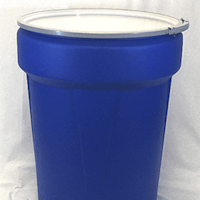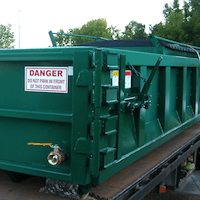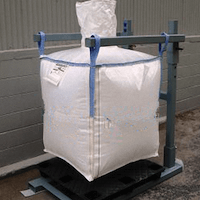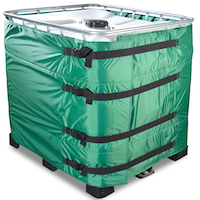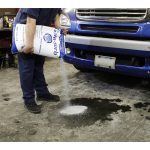GUEST BLOG
Spill Preparedness in Transportation:
Containing Costs and Limiting Liability After Environmental Releases
By Tom Moses, Esq. President, Spill Center
A transportation accident or emergency release that results in an environmental hazard is, for most businesses, an extraordinary occurrence. Yet every business needs to be prepared for such an event. Spills of hazardous materials, diesel fuel and other regulated substances are subject to a maze of environmental regulations. Nearly 30,000 federal, state and local jurisdictions across the U.S. require incident reports from spill generators. Shippers and transporters who are unprepared to handle spill emergencies quickly and comply with all reporting requirements can end up with major expenses for cleanup and disposal services, liability issues, and steep penalties for failing to file incident reports on time.
Reportable quantities vary from jurisdiction to jurisdiction, and spills often involve multiple jurisdictions, confusing the issue. When in doubt about whether a spill involves a reportable quantity, report it. Failure to file required reports can bring stiff fines and penalties, making it unwise to try to cover up a spill. This paper recounts the details of incidents that were managed properly and reported in a timely manner, saving the spill generators money and limiting their legal liability.
—
Any fleet can become a spill generator. The time to prepare for an environmental release is before it happens. Being prepared for environmental incidents – on the highway or at your facility – is the best way to contain costs and limit liability associated with spills. That involves creating a spill contingency plan with detailed instructions for handling spills quickly and complying with all regulations associated with those incidents. Fuel spills and other accidental releases of hazardous or regulated materials, even in small quantities, can turn into expensive incidents for the spill generator who is not adequately prepared to deal with them.
Create a detailed contingency plan for each activity that has the potential to produce a spill emergency. List the names and phone numbers of local, state and federal environmental agencies and their reporting requirements. And make sure someone in your organization is responsible for keeping up with changes in the regulations. Line up outside resources and experts and make them a part of your spill emergency team.
List the names and numbers of local cleanup contractors qualified to handle spills of the materials used in your facilities and areas in which your fleet operates. You might include an expert in environmental claims management such as Spill Center, which can provide assistance with technical and legal aspects associated with spills.
A spill contingency plan is important because it ensures that the right people in your company are notified, the right internal and external reports are triggered, and preferred contractors are Spill Preparedness in Transportation 2
contacted to handle the spill. The contingency plan is the key to efficient coordination of cleanup, mitigation and reporting efforts. The time you spend “planning a spill” can help minimize your costs and limit the likelihood of liability claims in the event of an unintentional release on the road or at your facility.
By aligning yourself with experts who are equipped to provide assistance when you need it most, you broaden your state of preparedness and help minimize your fleet’s spill-related costs and liability. Spill Center, for example, assists clients with custom spill contingency planning, makes cleanup contractor referrals, and handles all required regulatory reporting, incident screening, invoice auditing, and documentation of incidents. No fleet should ever have enough spills to get good at handling them.
Driver training is another important aspect of spill preparedness. Trucks should be equipped with spill kits containing plugs, trenching tools and absorbent materials that can be used to stop fuel leaks and limit damage to the environment. Drivers should be instructed in the use of items in the kits. Drivers should also know the location of fuel shutoff valves on their trucks and understand the importance of preventing leaking fuel from running into streams or storm drains. Even a minor spill can wreak environmental havoc if the fuel reaches water.
The EPA classifies spilled fuel as hazardous waste. Any incident resulting in contamination of drinking water by fuel or oil should be reported to the National Response Center, the federal point of contact for reporting oil and chemical spills. Environmental liability for spill damages goes to the spill generator, even if the release occurred as a result a highway accident in which the truck driver was blameless. As the spill generator, it’s your responsibility to contain the spill, report it, then clean it up.
Know Your Reporting Duties
The key to staying out of trouble with environmental authorities is in knowing which reports you owe to whom after accidental releases of fuel, spent solvents, cleaning materials, toxic chemicals and other hazardous materials used in a typical fleet operation. Never try to cover up an environmental incident. Stiff fines for failure to report make that an unwise decision. In fact it’s better to report a spill even if you do not believe it involves a reportable quantity. If someone in authority says it isn’t reportable, that is the best legal defense against third-party claims related to the spill. Just make sure you get the name, position and phone number of the person who said you didn’t need to report it.
Get to know your local and state environmental authorities and the reporting requirements of each jurisdiction in which you maintain and operate equipment. Laws vary from one jurisdiction to the next. Some jurisdictions require environmental or ground water testing after a spill. In a maintenance facility that handles and manages a broad variety of chemicals and wastes, pollution prevention and proper disposal of regulated materials are primary considerations. Check with environmental authorities to ensure that you are in compliance with all regulations regarding water runoff, underground and above-ground storage tanks and spill prevention/ containment.
Maintain current information and contacts for every jurisdiction in which your equipment operates to protect yourself from fines for non-compliance with environmental reporting regulations. The alternative is to use the services of experts who can do that for you and provide advice on how to avoid getting caught in the maze of environmental laws. For over 20 years, Spill Center® has been assessing and managing spills for clients and providing 24/7 reporting
Spill Preparedness in Transportation 3
services and assistance with technical and legal aspects associated with spills throughout North America.
People often ask me why they should sign up with Spill Center or another organization providing spill support services when they are already covered by insurance. The answer is simple. Insurance companies do not pay fines and penalties arising from failure to report spills or for late reporting. For that reason, insurance companies do not train people to understand reporting documentation or controlling cost and limiting liability related to spills.
Spill Center compliance associates, who include legal, technical and environmental specialists, coordinate spill response and complete telephone and written reports for clients. They fill out more than 300 US DOT Incident Report Forms each month as part of Spill Center’s program of spill-related services for clients – more incident reports for clients than any other organization in the country. As such, we were recognized with a seat on the US DOT Task Force on proposed rule making for the DOT 5800.1 Incident Report.
We have developed a highly sophisticated spill reporting and documentation program, which is applied to the management of every incident that we handle for clients. We maintain a database of current regulations for nearly 30,000 federal, state, provincial and local jurisdictions throughout North America. We are experts at NRC, EPA, DOT, state, and local reports, and we can ensure that your reports are completed accurately and filed on time. Even if you’re comfortable filing your own reports, we are working every day to add new online report generation tools to cut down on your paperwork.
I’m also asked if a carrier does not handle hazmat, why would it want Spill Center services? The answer is simple: because not all regulated spills involve cargo. About half of the spills processed by Spill Center involve ruptured saddle tanks or damaged fuel lines. The average amount of fuel released is just over 100 gallons, and the per incident cost can top $15,000. When it comes to fines and penalties for failure to report, most jurisdictions do not distinguish between diesel fuel and hazmat. They view them the same.
Environmental authorities take their reporting requirements very seriously. One private fleet was fined $75,000 by the N.J. Dept. of Environmental Protection after a routine diesel fuel spill of 30 gallons. The truck swerved to avoid hitting a car and scraped a saddle tank against a guard rail, puncturing the tank. The driver, equipped with a spill kit, stopped the flow from the tank, and the company filed a full accident report with the N.J. State Police. But the fine came from the failure to comply with the state’s environmental reporting requirement. The police had not mentioned the requirement; and the company thought it had done everything required of it. In this case, ignorance was anything but bliss.
Expensive Emergency Response
Here’s another example of a situation to avoid. One Spill Center client ended up with bills for thousands of dollars to reimburse fire and rescue services after a minor diesel fuel spill when 28 emergency personnel from two fire departments arrived on the scene after an accident involving one of the carrier’s vehicles. The truck had jack-knifed in a collision with another vehicle not far from the terminal in rural central Penna., rupturing the tractor’s fuel crossover line. By the driver’s calculation of miles traveled since his last fill-up, no more than five or six gallons of diesel fuel remained in the tank to leak out.
From a practical standpoint, most jurisdictions don’t respond to spills that small. Yet fire
Spill Preparedness in Transportation 4
departments have a right by law to be compensated when called by police at accident scenes. Could the driver have done anything to lessen the $14,346 in charges the carrier later received from the two fire departments?
Since the carrier was a Spill Center client, the driver should have immediately called the Spill Center Hotline to report the incident. We would have contacted the local fire departments to advise them of the small quantity of fuel involved. Basically, the first thing we do is give emergency responders enough information to decide to do nothing because a spill that seems very minor can have major consequences.
If you find yourself in a similar situation, call the fire department to request a copy of the ordinance authorizing it to seek reimbursement. Often times these statutes limit reimbursement to certain items of equipment or when a certain official is on the scene to authorize work. Some ordinances require that the work be reasonable and necessary or arising directly from the spill before it is reimbursable. Experienced counsel should determine exactly what the ordinance specifies.
There is a growing concern that local ordinances authorizing reimbursement are becoming overly broad and unfair, with few limits on the type of costs that can be charged. Spill Center looks closely at invoices as part of our auditing service. Without individual audits, carriers run the risk of not recognizing unreasonable charges, such as $25 for donuts or salary reimbursement for volunteer firefighters.
Fire departments and other public emergency service agencies that respond to environmental spills typically are authorized to seek reimbursement from spill generators. But not all the charges appearing on their invoices are reasonable or reimbursable. Transporters are being charged for everything from the cleaning, maintenance and replacement of gear to salaries and benefits of the emergency responders. Every invoice should be scrutinized and every authorizing statute questioned to avoid paying more than the law requires.
At Spill Center, we routinely screen invoices from emergency response agencies as part of our service. We look for questionable line items and unreasonable (out of line with other providers) or unauthorized charges on invoices such as line items not directly arising from the incident such as a labor charge with a pro-rated benefits cost or an administrative overhead charge. Unreasonable scope of work is also common, as in the case of multiple fire companies responding to a minor fuel spill and each one invoices the spill generator. Math errors are among the most common problems we find on these invoices. Never assume the math is correct. The numbers might not add up.
While we do not recommend that you refuse to reimburse reasonable charges from a fire department, especially if you have a facility in that municipality, you should carefully check invoices to avoid paying more than you legally owe. You can use any problem areas, such as costs not directly associated with the loss, to negotiate down the invoice amount. Replacing equipment damaged and materials used in the incident can be a good compromise.
Auditor Negotiates Down Charges
After an incident involving a diesel fuel spill on an icy road, a Spill Center auditor conducted a close inspection of a cleanup contractor’s invoice for work performed – and saved the client more than $1,700. A tank trailer belonging to one of the largest tank truck carriers in the US jackknifed in southeastern Pennsylvania early one morning, hospitalizing the driver and spilling
Spill Preparedness in Transportation 5
40-50 gallons of diesel fuel from a ruptured saddle tank. None of the cargo, toluene diisocyanate, a toxic chemical used in the production of polyurethane products, was released, but a product transfer was needed.
State Police arrived at the scene and notified the carrier and a local cleanup contractor. The York County Emergency Management Agency was also on scene. Upon learning of the accident, the carrier’s safety director notified Spill Center’s 24/7 call center in Hudson, Mass., to make required incident reports.
A Spill Center compliance associate took down the details of the incident and determined which agencies needed to be contacted, using Spill Center‘s database of nearly 30,000 local, state, provincial and federal jurisdictions for this purpose. We also maintain information on more than 3,000 qualified environmental cleanup contractors throughout North America. Spill Center receives no compensation from contractors.
Our compliance associate notified each agency requiring reports and contacted the cleanup contractor at the scene to go over requirements for the product transfer and site remediation. Normally, we also provide a list of qualified local contractors to our client to select from but, in this case, the police already had a contractor on the scene.
The site was excavated and the contaminated soil, which filled two roll-off containers, was ready to be taken to a disposal site. At that point, the compliance associate requested a quote for the disposal from the contractor, and forwarded it to the carrier. He also sent written reports to the regulatory agencies, advising them that the remediation and disposal had been completed. All required reports, both by telephone and written, had been filed on behalf of the carrier, avoiding fees and fines for non-compliance.
A long-time Spill Center client, the carrier doesn’t have many spills which require emergency cleanup. They use Spill Center a couple of times a year, usually on non-emergency incidents. They run an ultra-modern fleet of 700 tractors and 1,200 trailers – with an average trailer age of only 5 years (compared with the industry average of 12 years). Over 550 drivers work for the company, which has an excellent safety record and a collection of safety awards to prove it.
The safety director later told us that he likes working with Spill Center because of the ease of reporting and the quality of our employees. “You’re talking to people who know exactly what needs to be done, and they do it efficiently,” he said. The carrier runs 48 states, as well as Canada and Mexico, traveling through hundreds of different jurisdictions requiring reports after spills.
“There is absolutely no way on Earth we could keep track of all those individual cities, counties, states and federal reporting regulations,” he noted. “Knowing that Spill Center stays on top of all of the regulatory requirements is a relief. The same thing applies to the cleanup contractor database. We know we can get the assistance we need after a spill with a single phone call to Spill Center.”
After the incident in Pennsylvania, the invoice sent by the contractor for work performed was received by the carrier, which, in turn, forwarded it to Spill Center to review. Invoice auditing is a Spill Center service that many clients request, especially for high-cost cleanup projects. The auditing service evaluates all charges from contractors, emergency responders and other service providers to determine that they are reasonable and in order. At Spill Center, the contractor’s invoice was audited by Senior Compliance Associate Tracie Murphy.
Spill Preparedness in Transportation 6
During her telephone conversations with the contractor, she questioned several of the invoiced charges, which resulted in a reduction of 2% of the total amount. The contractor also reduced the hourly charge for the roll-off truck, which handled the contaminated soil at the site, and reduced the charge for Level C personal-protection gear. Plus, he deleted charges for a chemical hose, photography and an administration fee.
The total reduction of the invoiced amount came to more than $1,700, and a credit memo was issued by the contractor to the carrier. The fleet safety director had been following the auditing and negotiation process through e-mails from Tracie Murphy, who kept him in the loop during her communications with the contractor. The carrier had used Spill Center’s invoice auditing service in the past – saving even more on occasion.
“Spill Center did an extraordinarily good job on our behalf for handling that situation. That is precisely why we will continue to sign up for the service,” the safety director said. “Spill Center is a great resource for any carrier, and I recommend them wholeheartedly.”
Strict Liability for Spill Incidents
Do you know the extent of your company’s exposure in the event of a hazmat spill? It can be significant and very costly. By law, your company, as the spill generator, is responsible to pay damage fees.
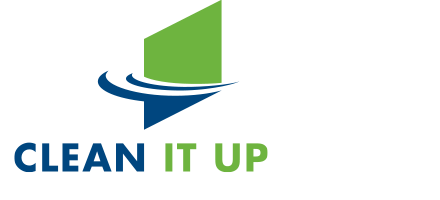


 P.O. Box 8149
P.O. Box 8149